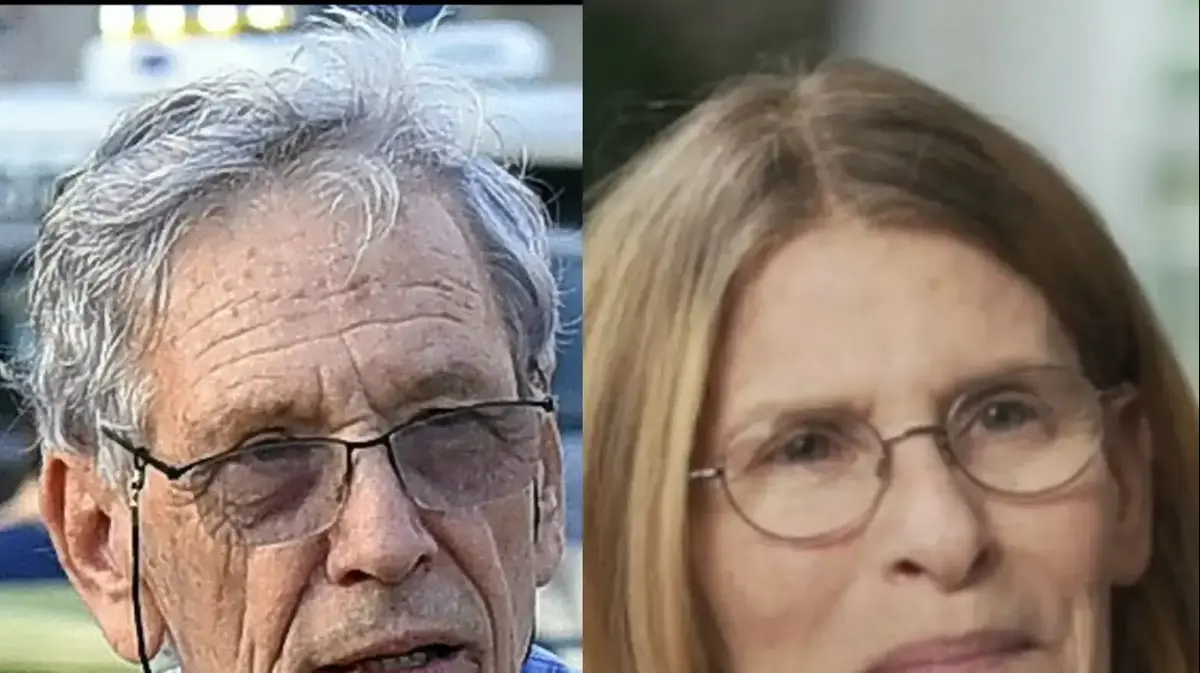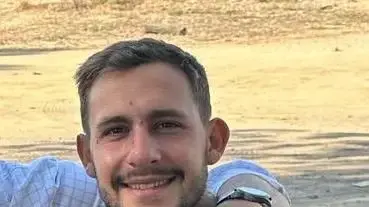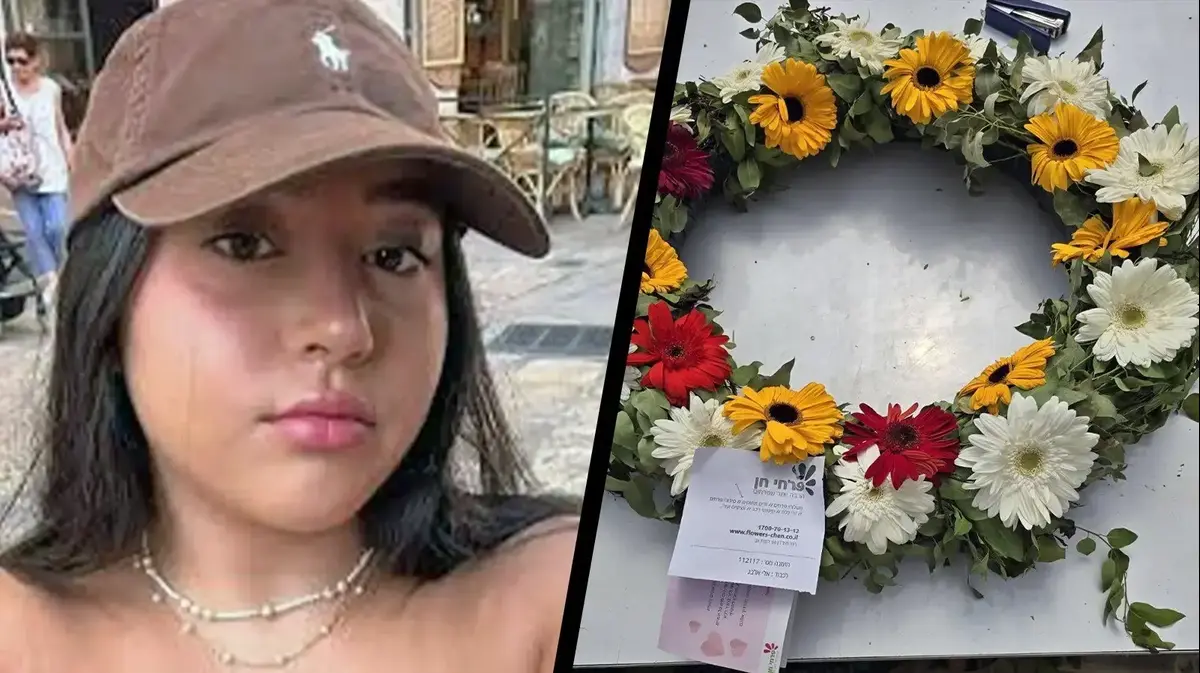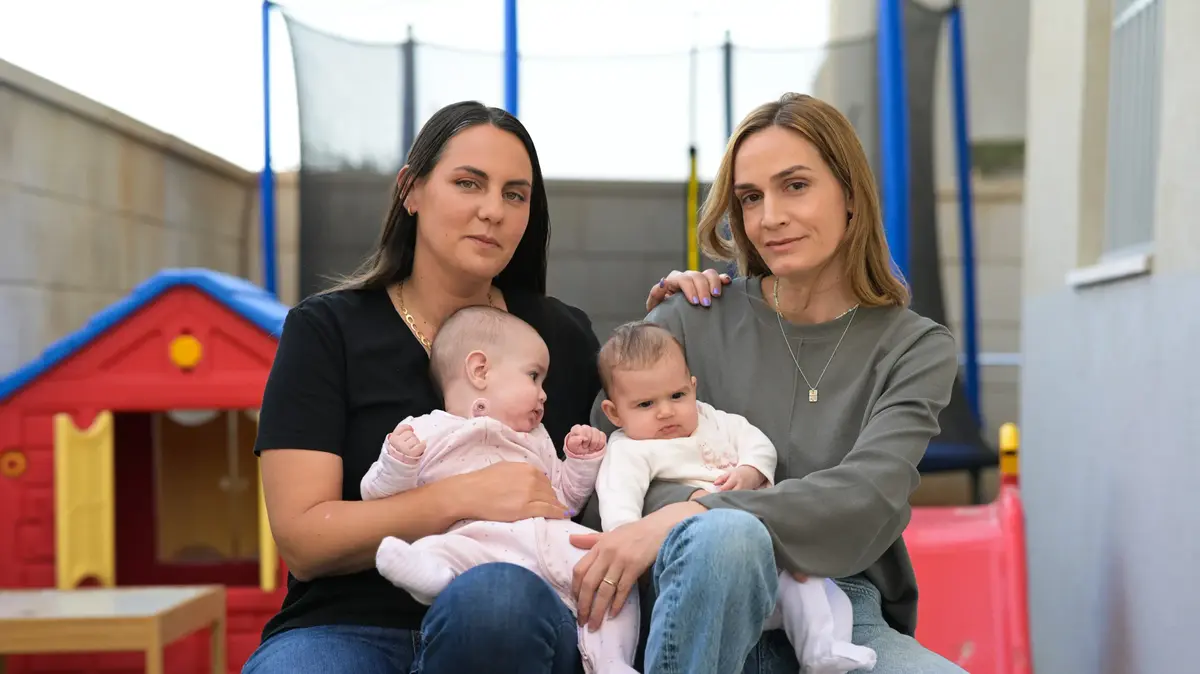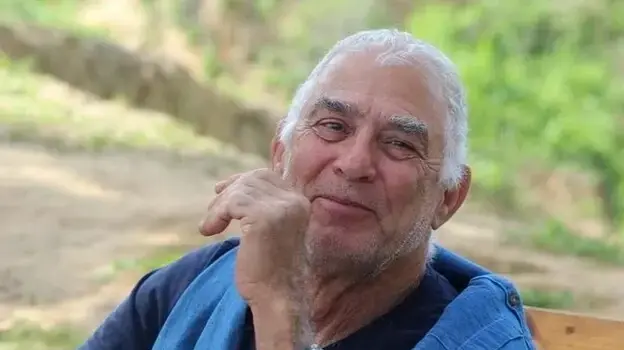culture
Literature
Galia Oz writes in the first person about the scars from her father.
The result is painful to read
"Something that disguises itself as love," Galia Oz's new book, describes childhood as well as adulthood in the shadow of toxic, destructive, unstable and explosive parenting.
She does not want them to stop reading her father Amos Oz's books and does not want to erase his legacy.
But she wants us to know who else he was.
Now we know
Tags
Amos Oz
Galia Oz
Strider Schleider Putschnik
Friday, 26 February 2021, 00:01
Share on Facebook
Share on WhatsApp
Share on general
Share on general
Share on Twitter
Share on Email
0 comments
Hard and painful testimony.
Galia Oz (Photo: screenshot, News 12)
Galia Oz has one good memory from her father where she is a toddler walking in rubber boots on the dark paths of the kibbutz on a rainy winter day.
He accompanies her with his umbrella to the children's home, where she sleeps like every night, like all the children of the kibbutz, in a shared accommodation.
There is nothing special about this memory that marks it as "good" in the eyes of the reader of her new book "Something Disguised as Love" (Kinneret Zmora Bitan), but it is engraved as good, in Oz's memory, because it lacks (still) the horror and rejection in which the relationship was saturated. Her with her father, the late writer Amos Oz.
Ask yourself how bad does evil have to be, for such a generic and uniqueness thing to be good?
Life at the Oz family home was probably not easy for anyone, but especially for Galia Oz.
It is difficult to define what exactly her new book is.
She tries to explain in it the circumstances in which she grew up and lived for quite a few years.
The life of a girl seems to be stepping inside her own biological family, under a revered but also tyrannical father figure, who has laid her hat on all members of the household but on her in particular.
It is a hard and painful testimony written in the first person and describes scars that are engraved on top of each other, and the result is a dull, rough scar tissue in which the feeling is almost lost.
This is not an emotional book, but it is painful to read.
Although it is written in an almost academic style (Oz also often quotes scholars from the field of psychology and other writers), which seems to create a distance between the difficult content and the reader and perhaps also between him and the writer, it is clearly reasoned to the point of utter disgust.
He is also very reliable, to me.
More on Walla!
NEWS
Galia Oz: My father admitted that he beat me, it is also part of Amos Oz's legacy
To the full article
Toxic parenting.
Amos Oz (Photo: Reuven Castro)
She describes in it physical and emotional abuse in deceptive aridity.
This is the story she has tried many times to tell people she thought were close to her, some even fate partners to some degree - like her family members, and silenced and texted.
Time and time again she was asked not to blacken her father's clean figure in the name of his legacy and worse, in many cases her claims and wounds were dismissed and ignored or the accusation rolled to her door ("You were a tough girl," "You were born bitter").
Oz describes childhood as well as adulthood in the shadow of toxic, destructive, unstable and explosive parenting.
Something that can turn on you at any moment, unexpected, but also self-conscious and with a built-in concealment mechanism, both of her own father and of the rest of the household who have become collaborators in favor of maintaining the very particular public aura of a "beautiful" writer and intellectual - as she is Defines it, appreciated.
Consensus of humanism and liberalism.
She does not know how to explain why she was a magnet for her father's insults.
Oz has another sister and a brother and she also has a mother.
According to her, they were all subject to one degree or another to the holy wrath and control of the father.
In "Something Disguised as Love," she explicitly describes one case in which she witnessed as a young woman the incident in which her father beat her mother, a case in which she evoked a vague memory of other such cases being suppressed over the years.
She does not talk about her brother and sister.
How scorching can be the insult of a girl who must be wondering why exactly she is always the target of her father's toxic pressures?
What is it about her that is not only unworthy of love, but arouses real hostility?
More on Walla!
NEWS
Amos Oz's daughter in a new book about her father: "Beat me and humiliate. It was a sadistic abuse"
To the full article
Mo drop a monument.
Oz (Photo: Yoav Itiel)
"When I started writing I felt I was stepping on a very narrow path. The shame and guilt, which are the price tag of ongoing abuse, planted in me the insight that it happened only to me, that I could not explain anyway and had no reason to publish. There was also the question of what I read, because when it comes In a famous man and in autobiographical writing it is easy to assume that this is poor gossip, "dirty laundry". This is not the case. My confession goes only far enough to put this part of my biography in a broader context. This book is about me, but I am not alone. Houses like home Where I grew up floating somehow in space, out of the reach of social workers, out of the reach of revolutions like "Who Two", without leaving a mark on social media. Nightmarish and isolated, they wisely encrypt their secrets like criminal organizations. To write about it I have no choice. But to overcome the silence and secrecy. "
Oz writes these things in the opening words of her book, and they serve as a kind of disclaimer and armor for her.
As if putting the accusations that might be hurled at her in advance following this exposure will hurt less when these allegations are made after publication.
Oz looks her fears in the eyes from the first page: they will tell me that I am a liar, that it did not happen, or that it only happened to me, that I am to blame for what happened to me, or that they will not address the essence and say it is "just gossip" or dirty laundry.
She does not have to imagine what it will feel like, because a reading of her book illustrates well that all these knives have been stuck in her flesh in the past.
She knows it will come and she also knows how it will feel.
And she convinces herself to walk nonetheless for this narrow path of shame and guilt (in her words), and seemingly the motive that ultimately led her to put her story in writing is the memory of a girl who thinks she's alone, that only it happens to her, and her knowing in the present that it is not true.
That there are more such houses, more such children.
And around them are probably also other adults who see and know and maintain the bond of silence.
Book cover (Photo: PR)
Even without these justifications, there is room for this book, in which Galia Oz speaks in several voices.
Once she is the witness, once the victim, and learning from the bitter experience she is, she also knows how to play the role of the counter-investigator who throws the arguments of refutation at her and also to answer him.
And what does she want - ask.
Towards the end of the book she also tries to answer this question:
"When I tell who my father was I recognize shock and heartbreak. Precisely he? It's like throwing down a monument. But older people know how to live in a complex world. After the shock, you can live with the seconds and doublings. "He was a lot of things to a lot of different people, and whoever loved him and appreciated his literature did not necessarily lose anything because of my testimony."
Galia Oz does not want them to stop reading her father's books, she does not want to erase his legacy.
But she wants us to know who else he was.
And now we know.
In recent years and even more so since the beginning of the MeToo revolution (which not without reason Oz explicitly mentions it) we are discovering more and more difficult stories about revered characters from various fields.
As this trend expands this burden becomes heavier.
More and more people we loved, appreciated and respected are exposed in all their flaws, iniquities and depravity.
It is not easy to hear, read and know.
But that is our part, as a society, in this revolution.
There are those who have experienced the scars on their flesh and blood, and their role (as long as they choose to take it upon themselves and that too and it is not obvious) is to tell.
Our job is to listen, and read and know.
To carry within us the knowledge and understanding of what has been done to them.
"Something that disguises itself as love," Galia Oz.
Published by Kinneret Zmora Bitan.
110 pages.
Share on Facebook
Share on WhatsApp
Share on general
Share on general
Share on Twitter
Share on Email
0 comments

